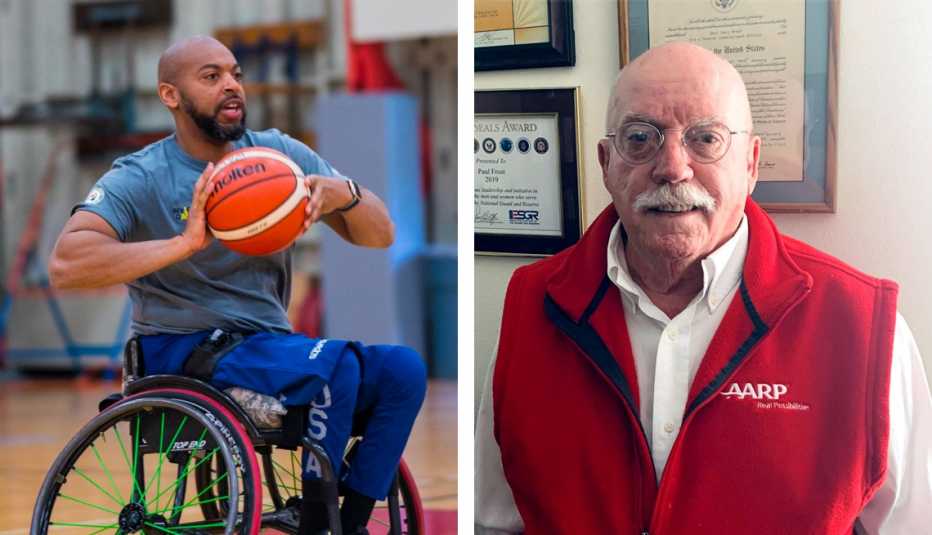Staying Fit


Two men decades apart in age and living in opposite corners of the country wouldn’t typically become friends. But, thanks to a volunteer program aimed at combating social isolation within the veteran community, they’ve forged a meaningful connection.


AARP Membership— $12 for your first year when you sign up for Automatic Renewal
Get instant access to members-only products and hundreds of discounts, a free second membership, and a subscription to AARP the Magazine.
The program, Veteran Friendly Voice, spearheaded by AARP and the Department of Veterans Affairs (VA), brings together trained volunteers with veterans over a video call, providing the opportunity to connect and have a conversation. The calls occur at least once a week over a three-month period and last for a minimum of 30 minutes apiece.
“Having someone to call and see you adds more power to the connection,” said Chauncy Rozier, a VA recreation therapist. “Until COVID-19 hit us, I think the idea of a phone call or just to see someone had lost its purpose. Now, coming out of COVID, people are more aware that it feels so good to be seen and heard and that they aren’t forgotten.”
One of the program’s first pairings was between retired U.S. Army Spc. Brent Garlic, 43, from Atlanta, and Paul Frost, a 78-year-old program volunteer and veteran from Edmonds, Washington.
“On paper, it would seem like it wouldn’t be the most ideal connection. But you never look at it that way,” said Garlic. “We both wanted to work and get the most out of it. And we did. And we still do.”
For his part, Frost said, “You’re always intimidated when you try and establish that first rapport. But when I called Brent, I was pretty amazed. We both had an affinity for racing and football.”
Beginning with sports, their conversations evolved to encompass discussions about relationships, money, career plans and other important life topics.
“I can’t say that there’s any one topic that has grabbed us and stayed with us,” said Frost. “But we’ve expanded into just, ‘Hey, how’s life?’ It’s worked out great for both of us.”

































































More on Home and Family
Why a Japanese American Vet Paved Her Own Path
Navy Capt. Macri says she was a military “triple threat”Decorated Veteran’s Injuries Prompt New Mission to Help Others
Gretchen Evans, 62, says she continues to serve after leaving the military
Veteran Finds Renewed Purpose Through Farming, Feeding Others
After 12 years in the Army, Peter Scott has a new mission: growing food for military families